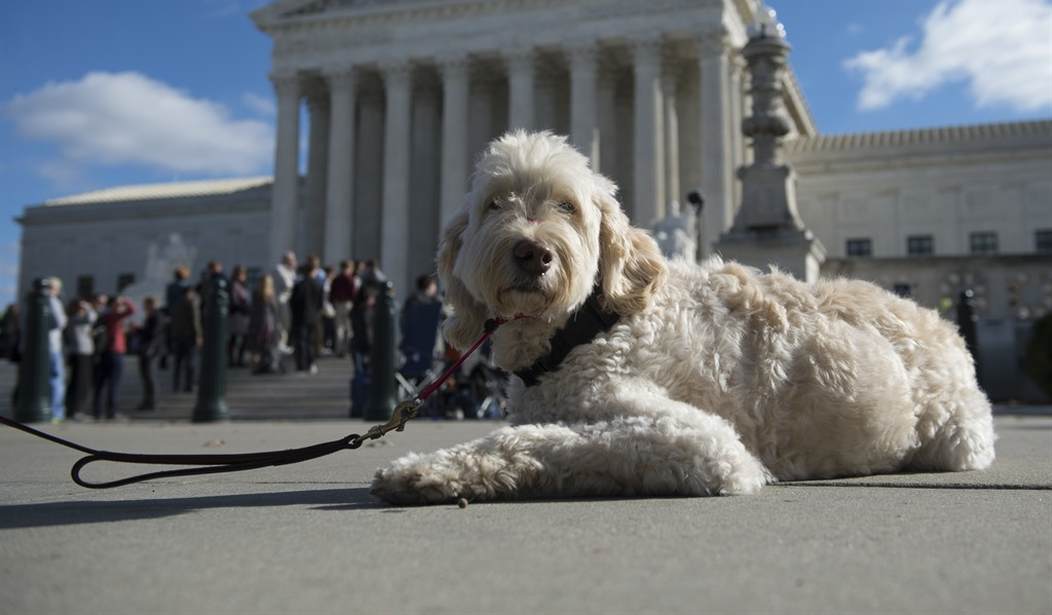Sen. Ted Cruz and some other Republicans are set on the latter course. Since the February death of Justice Antonin Scalia, the GOP-controlled Senate has refused to vote on the nominee to replace him, Merrick Garland. Republicans argued that because the vacancy occurred in an election year, the seat should not be filled until 2017. "The American people should have a voice in the selection of their next Supreme Court justice," said Senate Majority Leader Mitch McConnell.
Now, however, some Republicans think the American people should take a long walk off a short pier. With a likely Hillary Clinton victory looming, these senators vow to spurn anyone she might choose for the court, as many times as they have to.
"If Hillary Clinton becomes president," Sen. Richard Burr, R-N.C., promised, "I'm going to do everything I can do to make sure that four years from now, we've still got an opening on the Supreme Court." Cruz said, "There is certainly long historical precedent for a Supreme Court with fewer justices."
There is also a historical precedent for trying to change the number of justices to achieve outcomes desired by one political party. But it's not what you would call an auspicious one.
In 1937, fresh off a landslide re-election, President Franklin D. Roosevelt was unhappy with the court, which had struck down several New Deal initiatives. In his first term, he hadn't been able to appoint a single justice. He saw little chance of getting to put his stamp on it.
Recommended
But Roosevelt was not resigned to letting mere Supreme Court justices impede his ambitions for a more powerful federal government. Because he couldn't get rid of the conservative justices, he came up with another idea: add more seats, which he would gladly fill. He proposed to expand the court by one justice for each sitting justice who was over age 70, to as many as 15 members.
As historian David Kennedy notes in "Freedom from Fear: The American People in Depression and War, 1929-1945," Roosevelt insisted the change would equip the court better to deal with an evolving nation, since older justices might "avoid an examination of complicated and changed conditions."
True, he acknowledged, the court had been made up of nine justices since 1869, but that was no reason to keep the number there. Earlier, it had been set lower or higher. But Roosevelt's plan was so transparently dishonest and political that it blew up in his face.
He not only failed but alienated many voters and gave credence to the Republican claim that he was a dictator in the making. "Roosevelt was proposing to fiddle with one of the most respected and immutable American institutions, one designed by the Founders and enshrined in national mythology as the ballast whose unshifting weight could be counted upon to steady the ship of state," wrote Kennedy.
Cruz, Burr and other Senate Republicans ought to heed that infamous episode. There is nothing sacred about the number nine. But changing the size of the court in an attempt to influence how it decides future cases would be a cynical assault on the judiciary and republican government -- as it was seen to be in 1937.
To say that a duly elected president should be endlessly resisted on Supreme Court nominations is to insult the electorate that chose the president. One tradition that makes our system of government work is that while the Senate advises and consents on judicial nominations, it does not presume to choose nominees. Another is that it does not treat Supreme Court vacancies as opportunities for mischief and manipulation.
Intractable obstruction invites Democrats to respond in kind, upending conventions for their short-term advantage. Should they gain control of the Senate, they could jettison the filibuster rule -- a product of custom, not the Constitution -- to allow Supreme Court nominations to proceed to a vote without the approval of 60 members. On what principle could Republicans object?
If you don't like the Supreme Court nominations a president makes, the appropriate remedy is to win the next election and install a president whose choices will suit you better. And if you don't win, remember that the health of democracy depends not on the winners accepting the results but on the losers.

























Join the conversation as a VIP Member